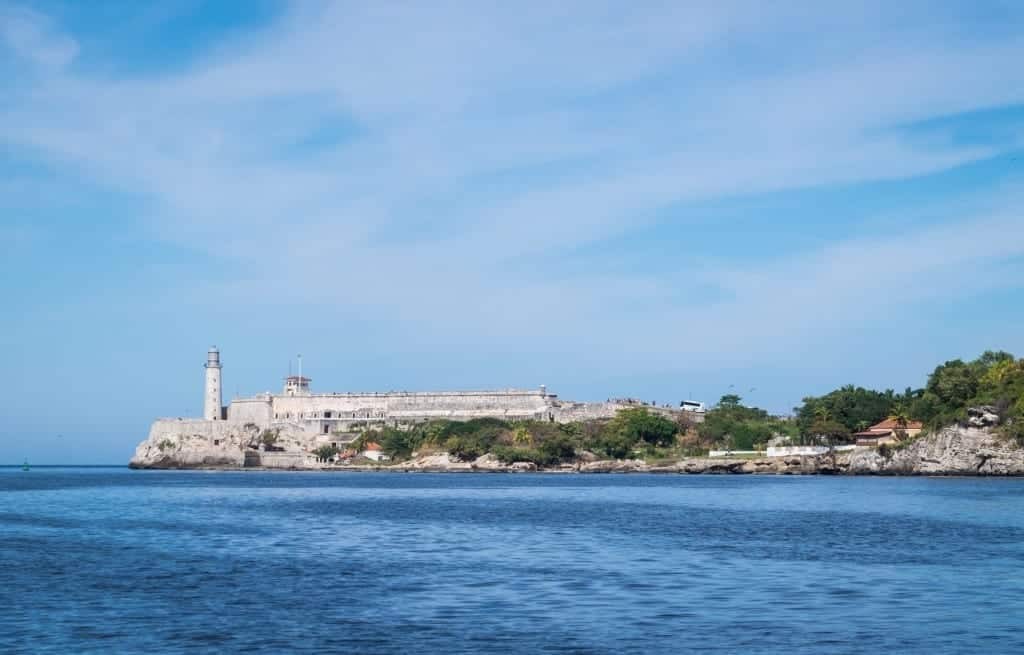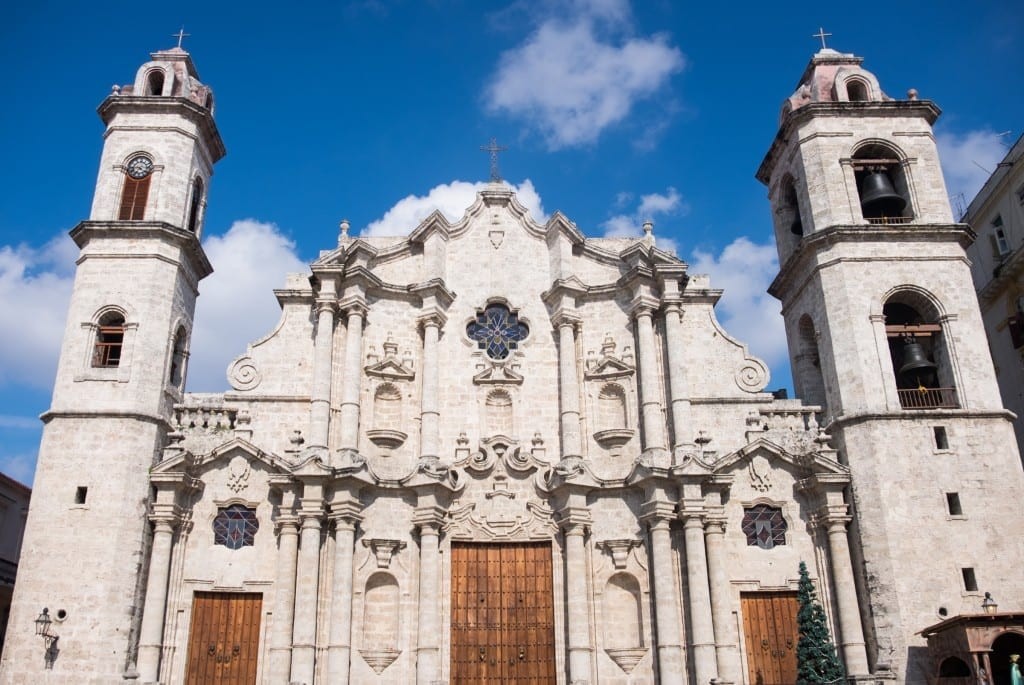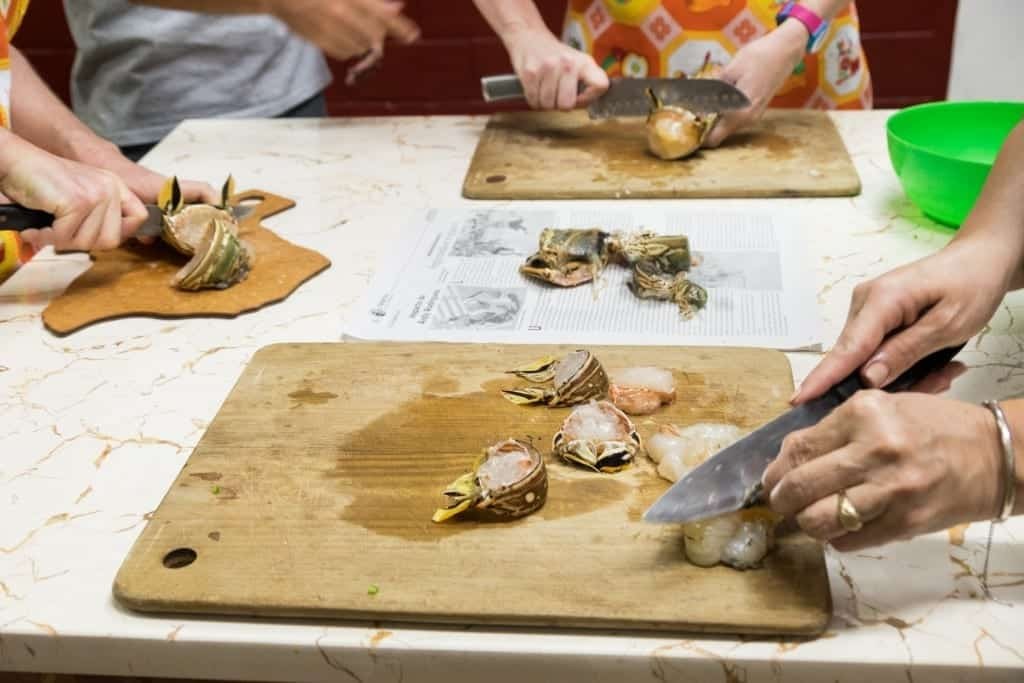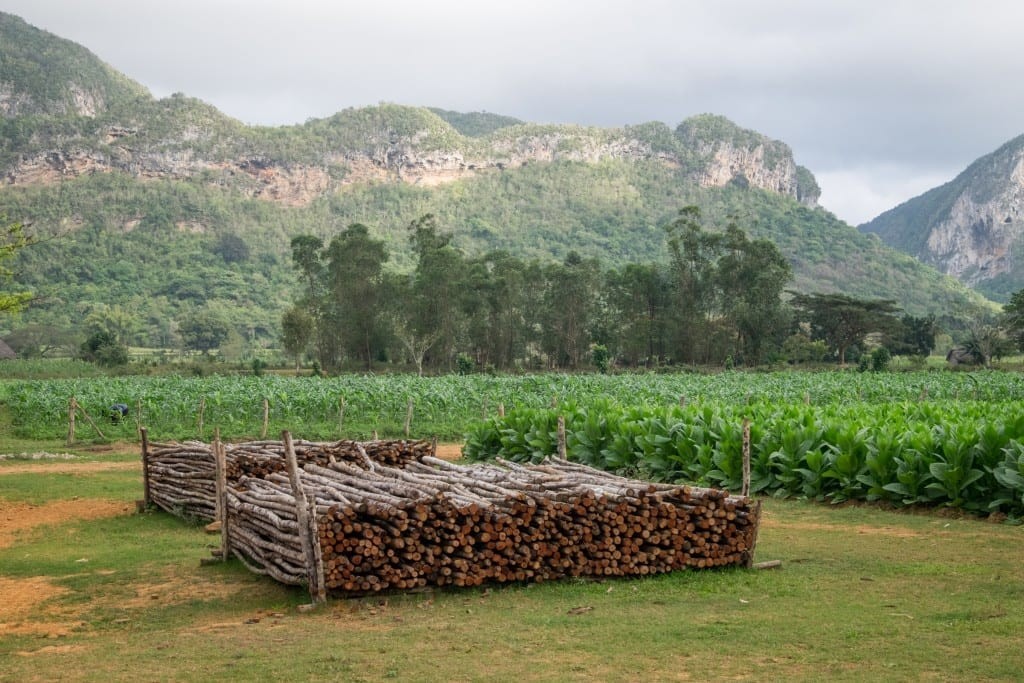Booking travel to Cuba might seem complicated, but it’s definitely achievable for Americans with the right planning. TRAVELS.EDU.VN is here to guide you through the process of legally and safely experiencing the vibrant culture and stunning landscapes of Cuba, ensuring a memorable and hassle-free trip. We’ll cover everything from visa requirements to financial considerations, providing you with expert insights and up-to-date information for your Cuban adventure, so you can enjoy authentic Cuban experiences.
1. Can Americans Travel to Cuba? Understanding the Regulations
Yes, Americans can travel to Cuba. While travel restrictions have existed for decades, there are legal avenues for U.S. citizens to visit the island nation. Understanding the current regulations is the first step in planning your trip.
1.1. The U.S. Embargo and Travel Restrictions
The U.S. embargo against Cuba, in place since the early 1960s, restricts tourist travel to Cuba. However, there are authorized categories of travel that allow Americans to visit legally. The Office of Foreign Assets Control (OFAC) defines these categories.
1.2. Authorized Categories of Travel to Cuba
Americans can travel to Cuba under one of 12 authorized categories. These categories aren’t tourist visas, but rather reasons for travel that are permitted under U.S. law. The most common categories for individual travelers include:
- Support for the Cuban People: This requires travelers to engage in activities that directly support Cuban citizens and avoid spending money at government-owned entities. This can include staying in casas particulares (private homestays), eating at privately owned restaurants, and visiting local businesses.
- Journalistic Activity: Individuals with professional journalistic intentions can travel to Cuba legally.
- Educational Activities: Faculty and students engaging in educational exchange programs.
- Professional Research and Professional Meetings: This category allows individuals to conduct research or attend professional conferences in Cuba.
- Humanitarian Projects: Americans involved in humanitarian work can travel under this category.
- Family Visits: Those visiting close relatives who are Cuban citizens can apply for this category.
1.3. Choosing the Right Travel Category
Selecting the correct travel category is crucial for legal travel to Cuba. If you’re planning a trip focused on cultural immersion and supporting local businesses, the “Support for the Cuban People” category is the most suitable.
1.4. Recent Changes in Travel Regulations
It’s essential to stay updated on any changes to U.S. travel regulations concerning Cuba. While the Trump administration eliminated the “people-to-people” category, the “Support for the Cuban People” category remains a viable option for many travelers. Biden’s administration hasn’t made any significant regulatory changes since 2021. Check the U.S. Department of Treasury’s OFAC website for the most current information.
2. How to Obtain a Cuban Visa or Tourist Card
A Cuban visa, also known as a tourist card, is required for most travelers entering Cuba. The process varies depending on where you’re flying from.
2.1. Applying for a Visa in Advance
If you’re traveling from the United States, you’ll typically need a “pink tourist card.” This can often be obtained at the departure airport or through your airline. Some airlines include the cost of the tourist card in the ticket price, so check with your carrier beforehand.
2.2. Purchasing a Tourist Card at the Departure Airport
Many airlines that fly to Cuba from the U.S. sell tourist cards at the check-in counter or gate. Be prepared to pay a fee, usually around $50-$100 USD. Ensure you have the correct type of tourist card (pink for flights from the U.S.).
2.3. Tourist Card for Flights from Other Countries
If you’re flying to Cuba from a country other than the U.S. (e.g., Mexico, Canada), you’ll need a “green tourist card.” These can be purchased at the departure airport, typically from the airline’s ticket office.
2.4. Online Visa Services
Several online services specialize in providing Cuban tourist cards. While convenient, these services often charge processing fees. Ensure the service is reputable before using it.
2.5. Visa Requirements for Different Nationalities
Visa requirements for Cuba can vary depending on your nationality. Check the Cuban embassy or consulate website in your country for specific requirements.
 Havana from the Malecon with lighthouse and blue sky
Havana from the Malecon with lighthouse and blue sky
3. Booking Flights to Cuba: Direct Flights and Connecting Routes
Flying to Cuba has become more accessible in recent years, with direct flights available from several U.S. cities.
3.1. Direct Flights from the United States
Several airlines offer direct flights to Havana (HAV) from cities like Miami (MIA), New York (JFK), Fort Lauderdale (FLL), and Atlanta (ATL). These flights make travel to Cuba more convenient for Americans. You can often find competitive rates using flight comparison websites.
3.2. Connecting Flights via Other Countries
Another option is to fly to Cuba via another country, such as Mexico (Cancún or Mexico City) or Canada (Toronto). This can sometimes be a more affordable option, but it requires additional travel time and planning.
3.3. Airlines That Fly to Cuba
Airlines that currently fly to Cuba include:
- American Airlines
- JetBlue
- United Airlines
- Copa Airlines (via Panama City)
- Air Canada (via Toronto)
- Aeromexico (via Mexico City)
3.4. Finding Affordable Flights
To find the best deals on flights to Cuba, consider the following tips:
- Be Flexible with Travel Dates: Mid-week flights and travel during the off-season (May, June, September, and October) tend to be cheaper.
- Use Flight Comparison Websites: Websites like Skyscanner, Google Flights, and Kayak allow you to compare prices from multiple airlines.
- Book in Advance: Booking your flight several months in advance can often result in lower fares.
- Consider Connecting Flights: While less convenient, connecting flights can sometimes be significantly cheaper than direct flights.
3.5. Understanding Airport Codes
Familiarize yourself with the airport codes for major Cuban airports:
- Havana (HAV) – José Martí International Airport
- Varadero (VRA) – Juan Gualberto Gómez Airport
- Santa Clara (SNU) – Abel Santamaría Airport
- Holguín (HOG) – Frank País Airport
- Santiago de Cuba (SCU) – Antonio Maceo Airport
4. Accommodation Options: Hotels vs. Casas Particulares
Choosing the right accommodation is an essential part of planning your trip to Cuba. You have two primary options: hotels and casas particulares.
4.1. Hotels in Cuba
Hotels in Cuba range from budget-friendly options to luxurious resorts. Many hotels are government-owned, which means Americans must be cautious about spending money at these establishments due to U.S. regulations.
4.2. Casas Particulares: Supporting the Cuban People
Casas particulares are private homestays that offer a more authentic and immersive experience. Staying in casas directly supports Cuban families and helps you comply with the “Support for the Cuban People” travel category. They typically range from $25-$50 per night and offer a unique glimpse into Cuban life. TRAVELS.EDU.VN recommends choosing this option to engage with local communities.
4.3. Booking Casas Particulares
Casas particulares can be booked through websites like Airbnb and CubaCasa. Ensure you read reviews and check the location before booking.
4.4. Advantages of Staying in Casas Particulares
- Authentic Experience: Live with a Cuban family and experience their culture firsthand.
- Local Support: Your money directly benefits Cuban citizens.
- Affordability: Casas are often more affordable than hotels.
- Personalized Service: Hosts can provide valuable insights and recommendations.
4.5. Hotels on the Restricted List
The U.S. State Department maintains a list of restricted entities and subentities associated with Cuba. Americans are prohibited from transacting with these entities. Always check this list before booking a hotel or using any service in Cuba.
5. Money Matters: Currency, ATMs, and Credit Cards
One of the most critical aspects of traveling to Cuba as an American is managing your finances. Due to the U.S. embargo, American credit and debit cards do not work in Cuba.
5.1. Cash is King: Bringing Enough Money
You must bring enough cash to cover all your expenses in Cuba, including accommodation, food, transportation, activities, and souvenirs. It is better to overestimate than to run out of money, as you won’t be able to withdraw funds from ATMs or use credit cards.
5.2. Currency Exchange: USD vs. EUR
You can bring U.S. dollars (USD) or Euros (EUR) to exchange for Cuban pesos (CUP). In the past, USD received a less favorable exchange rate, but recent changes have made the rates more equitable. It’s advisable to check the current exchange rates before your trip.
5.3. Where to Exchange Money
- Banks: You can exchange money at Cuban banks, but expect long lines.
- CADECA Exchange Bureaus: These are government-run exchange bureaus that offer better rates than hotels.
- Casas Particulares: Some casas offer currency exchange services, often at competitive rates.
- Airports: Avoid exchanging money at the airport, as the rates are typically less favorable.
5.4. Two Currencies: CUP and CUC (Until recently)
Cuba previously had two official currencies: the Cuban Convertible Peso (CUC) and the Cuban National Peso (CUP). As of 2021, the CUC is no longer in circulation. Tourists will primarily use CUP.
5.5. Budgeting for Your Trip
Estimate your daily expenses based on your travel style. Budget travelers can expect to spend around $50-$75 USD per day, while those seeking more comfort and luxury should budget $100-$200 USD or more per day.
5.6. Keeping Your Money Safe
Traveling with large amounts of cash requires vigilance. Use a travel safe in your accommodation and consider using a Speakeasy Travel Supply scarf with a hidden pocket to conceal some of your money.
 Church in Old Havana with Blue Sky
Church in Old Havana with Blue Sky
6. Internet and Communication: Staying Connected (or Disconnecting)
Internet access in Cuba is limited and can be challenging to navigate.
6.1. Wifi Hotspots and ETECSA Cards
The primary way to access the internet is through wifi hotspots, typically found in parks, hotels, and ETECSA (the Cuban telecommunications company) offices. You’ll need to purchase an ETECSA wifi card, which provides a username and password for one hour of internet access. These cards cost around $1 USD per hour.
6.2. Purchasing Wifi Cards
Wifi cards can be purchased at ETECSA stores or from street vendors. Be aware that street vendors may charge a higher price.
6.3. Using Wifi Hotspots
To use a wifi hotspot, connect to the ETECSA wifi network and enter your username and password from the wifi card. Be mindful of your time, as the connection will automatically disconnect after one hour.
6.4. Mobile Data and Roaming
American mobile phone plans typically do not offer data roaming in Cuba. Even if your plan includes international roaming, the rates can be exorbitant. It’s best to avoid using mobile data to prevent unexpected charges.
6.5. Offline Apps and Resources
Download offline maps, translation apps, and guidebooks before your trip. This will help you navigate and communicate without relying on internet access.
6.6. Staying Safe Online
Avoid accessing banking websites or apps while in Cuba, as this can trigger security alerts and potentially freeze your accounts.
7. Activities and Experiences: Supporting the Cuban People
To comply with the “Support for the Cuban People” travel category, engage in activities that directly benefit Cuban citizens.
7.1. Staying in Casas Particulares
As mentioned earlier, staying in casas particulares is a great way to support local families.
7.2. Eating at Paladares
Paladares are privately owned restaurants that offer authentic Cuban cuisine. Avoid eating at government-owned restaurants. A guide to the best restaurants in Havana is a valuable resource.
7.3. Visiting Local Markets
Support local artisans and farmers by visiting markets and buying souvenirs directly from them.
7.4. Taking Cooking Classes
Participate in a Cuban cooking class to learn about local cuisine and support Cuban chefs. Airbnb Experiences offers several highly-rated cooking classes in Havana.
7.5. Hiring Local Guides
Hire local guides for tours and excursions. This provides them with income and allows you to learn about Cuban history and culture from a local perspective.
7.6. Attending Cultural Events
Attend local concerts, dance performances, and art exhibitions to support Cuban artists and musicians.
 Hands chopping the raw lobster, still in its shell
Hands chopping the raw lobster, still in its shell
8. Essential Packing List for Cuba
Packing appropriately for Cuba will ensure a comfortable and enjoyable trip.
8.1. Clothing
- Lightweight and breathable clothing
- Comfortable walking shoes
- Swimsuit
- Hat and sunglasses
- Rain jacket or umbrella
8.2. Health and Hygiene
- Sunscreen
- Insect repellent
- Hand sanitizer
- Any necessary medications
- First-aid kit
8.3. Money and Documents
- Cash (USD or EUR)
- Passport
- Cuban visa or tourist card
- Travel insurance information
- Copies of important documents (stored separately)
8.4. Electronics
- Unlocked smartphone
- Portable charger
- Camera
- Adapter (if needed)
8.5. Other Essentials
- Travel safe
- Speakeasy Travel Supply scarf or money belt
- Reusable water bottle
- Spanish phrasebook
- Gifts for your hosts (optional)
9. Staying Safe and Healthy in Cuba
Cuba is generally a safe country for tourists, but it’s essential to take precautions to protect your health and safety.
9.1. Health Precautions
- Consult your doctor about necessary vaccinations and health advice before your trip.
- Drink bottled water to avoid stomach issues.
- Be cautious about eating street food.
- Protect yourself from mosquito bites by using insect repellent.
- Bring any necessary medications with you, as they may be difficult to find in Cuba.
9.2. Safety Tips
- Be aware of your surroundings and avoid walking alone at night in poorly lit areas.
- Keep your valuables secure and avoid displaying expensive jewelry or electronics.
- Be wary of scams and touts.
- Learn a few basic Spanish phrases to communicate more effectively.
- Trust your instincts and avoid situations that feel unsafe.
9.3. Travel Insurance
Travel insurance is required to visit Cuba. Ensure your policy covers medical expenses, trip cancellations, and other unexpected events. Check that your insurance provider is valid in Cuba. (Note: World Nomads no longer provides coverage in Cuba.)
10. Exploring Cuba: Popular Destinations and Activities
Cuba offers a diverse range of attractions, from historic cities to stunning beaches and lush countryside.
10.1. Havana: A City of History and Culture
Havana, the capital of Cuba, is a vibrant city with a rich history and culture. Explore Old Havana, a UNESCO World Heritage site, and admire the colonial architecture, classic cars, and lively street life. Visit the Museo del Ron to learn about Cuban rum.
10.2. Viñales: A Natural Paradise
Viñales, located in the Pinar del Río province, is a stunning region known for its limestone hills (mogotes), tobacco farms, and lush landscapes. Take a tour of a tobacco farm, go horseback riding, or explore the Viñales Valley.
10.3. Varadero: Beach Bliss
Varadero is a popular beach resort town with pristine white sand beaches and turquoise waters. Relax on the beach, go swimming, or try water sports.
10.4. Trinidad: A Colonial Gem
Trinidad, another UNESCO World Heritage site, is a beautifully preserved colonial town with cobblestone streets, colorful buildings, and a rich history.
10.5. Other Destinations
- Cienfuegos: Known as the “Pearl of the South,” Cienfuegos is a charming coastal city with French colonial architecture.
- Santiago de Cuba: The second-largest city in Cuba, Santiago de Cuba is known for its music, dance, and revolutionary history.
- Bay of Pigs: A historic site where the failed U.S.-backed invasion took place in 1961.
 Mountains of Vinales and Tobacco Fields
Mountains of Vinales and Tobacco Fields
11. Responsible Travel in Cuba: Supporting the Local Economy
Travel responsibly by supporting the Cuban people and respecting their culture.
11.1. Shop Locally
Buy souvenirs and products from local artisans and businesses.
11.2. Respect Cuban Culture
Learn about Cuban history and culture, and be mindful of local customs and traditions.
11.3. Engage with Locals
Talk to Cuban people and learn about their lives and experiences.
11.4. Avoid Government-Owned Businesses
As much as possible, avoid spending money at government-owned businesses.
11.5. Be Mindful of Your Impact
Be aware of your environmental impact and take steps to minimize it.
12. Common Scams and How to Avoid Them
While Cuba is generally safe, it’s important to be aware of common scams.
12.1. Taxi Scams
- Overcharging: Negotiate the fare before getting into a taxi.
- “Broken” Meter: Ensure the meter is working or agree on a price beforehand.
- Taking a Longer Route: Be aware of the route and ensure the driver isn’t taking you on a longer route to increase the fare.
12.2. Accommodation Scams
- Fake Casas: Book casas through reputable websites like Airbnb or CubaCasa to avoid scams.
- Double Booking: Confirm your reservation a few days before your arrival.
12.3. Street Hustlers
- Cigar Scams: Be cautious about buying cigars from street vendors, as they may be fake or of poor quality.
- “Helping” You Find a Casa: Some people may offer to help you find a casa, but they may take you to a more expensive place and earn a commission.
- Fake Beggars: Be wary of people who approach you asking for money, especially if they have elaborate stories.
12.4. Currency Scams
- Fake Currency: Be careful when exchanging money and ensure the currency is genuine.
- Incorrect Exchange Rates: Check the current exchange rates and ensure you’re getting a fair rate.
12.5. General Tips
- Be wary of anyone who approaches you offering unsolicited help or services.
- Trust your instincts and avoid situations that feel uncomfortable.
- Don’t display large amounts of cash or expensive jewelry.
- Keep your belongings secure and be aware of your surroundings.
13. Learning Some Basic Spanish Phrases
Knowing a few basic Spanish phrases will greatly enhance your travel experience in Cuba.
13.1. Greetings
- Hola: Hello
- Buenos días: Good morning
- Buenas tardes: Good afternoon
- Buenas noches: Good evening/night
- ¿Cómo está?: How are you?
- Bien, gracias: Fine, thank you
13.2. Basic Phrases
- Por favor: Please
- Gracias: Thank you
- De nada: You’re welcome
- Sí: Yes
- No: No
- ¿Cuánto cuesta?: How much does it cost?
- ¿Dónde está…?: Where is…?
- No entiendo: I don’t understand
- ¿Habla inglés?: Do you speak English?
- Ayuda: Help
13.3. Transportation
- Taxi: Taxi
- Autobús: Bus
- ¿Me puede llevar a…?: Can you take me to…?
13.4. Accommodation
- Casa particular: Private homestay
- Hotel: Hotel
- Reserva: Reservation
13.5. Food and Drink
- Agua: Water
- Cerveza: Beer
- Café: Coffee
- Comida: Food
- Delicioso: Delicious
14. Frequently Asked Questions (FAQs) About Traveling to Cuba
14.1. Is it legal for Americans to travel to Cuba?
Yes, Americans can travel to Cuba legally under one of the 12 authorized categories of travel.
14.2. Do I need a visa to travel to Cuba?
Yes, you need a Cuban visa, also known as a tourist card. The process depends on where you’re flying from.
14.3. Can I use my credit card in Cuba?
No, American credit and debit cards do not work in Cuba. You must bring enough cash to cover your entire trip.
14.4. How much cash should I bring to Cuba?
Estimate your daily expenses and bring enough cash to cover accommodation, food, transportation, activities, and souvenirs. Budget travelers can expect to spend around $50-$75 USD per day, while those seeking more comfort should budget $100-$200 USD or more per day.
14.5. Is there internet access in Cuba?
Internet access is limited. You can access the internet through wifi hotspots by purchasing ETECSA wifi cards.
14.6. What is a casa particular?
A casa particular is a private homestay where you can stay with a Cuban family. It’s a great way to support the local economy and experience Cuban culture.
14.7. What should I pack for Cuba?
Pack lightweight clothing, comfortable walking shoes, sunscreen, insect repellent, any necessary medications, and a travel safe.
14.8. Is Cuba a safe country for tourists?
Cuba is generally a safe country, but it’s important to take precautions to protect your health and safety. Be aware of your surroundings, avoid walking alone at night, and keep your valuables secure.
14.9. What are some popular destinations in Cuba?
Popular destinations include Havana, Viñales, Varadero, and Trinidad.
14.10. How can I support the Cuban people during my trip?
Stay in casas particulares, eat at paladares, shop at local markets, and hire local guides.
Conclusion: Your Cuban Adventure Awaits
Traveling to Cuba as an American requires careful planning and adherence to U.S. regulations. By following this comprehensive guide from TRAVELS.EDU.VN, you can navigate the process with confidence and enjoy an unforgettable experience in this vibrant and culturally rich country. Remember to support the Cuban people, respect their culture, and embrace the unique opportunities that Cuba offers.
Ready to start planning your trip to Cuba? Contact TRAVELS.EDU.VN today for personalized assistance and expert travel advice. Our team can help you find the perfect casa particular, arrange local tours, and ensure you have all the information you need for a smooth and rewarding journey.
Contact us:
- Address: 123 Main St, Napa, CA 94559, United States
- WhatsApp: +1 (707) 257-5400
- Website: TRAVELS.EDU.VN
Don’t wait—begin your Cuban adventure with travels.edu.vn today.
